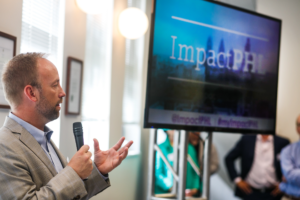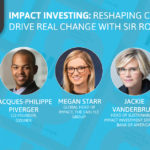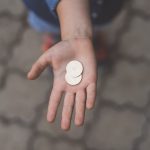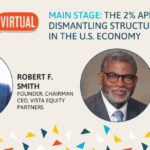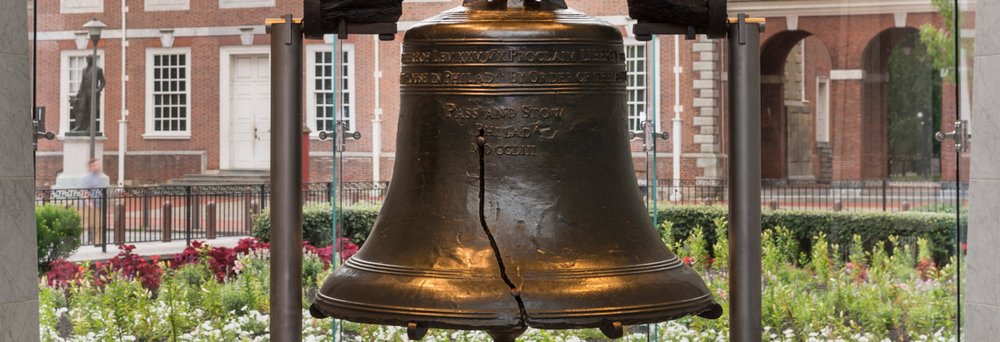
A Total Impact conversation with John Moore, Executive Chair of ImpactPHL
Total Impact is an initiative of The Good Capital Project and SOCAP. This event was developed to meet the unmet demands of Financial Advisors, Wealth Managers, Family Offices, and Investors who are seeking actionable, executable information on building total portfolios that include impact investments across asset classes. Total Impact will convene April 26 and 27, 2018 at the Cira Centre in Philadelphia, Pennsylvania.
In the months leading up to Total Impact we will be interviewing key leaders in the space who have partnered with us to help grow the impact investing space through this event. This week we spoke with angel investor John Moore, who serves as the Executive Chair of ImpactPHL.
Q: Philadelphia was recently named a top cities for social enterprise ecosystems and has been discussed as a model for how to incubate a locally-driven economic resurgence in U.S. cities, nationwide. How has Philly become the home for so many impact investing and social entrepreneurship success stories?
John Moore: ImpactPHL is excited about the acceleration of the impact movement, especially all of the activity that has recently sprung up in the Philadelphia region. Philadelphia is a fertile ground for nurturing social impact. Most Philadelphians feel a tremendous loyalty to our city and this region, as was evident during the Philadelphia Eagles Super Bowl Championship. For a long time, most of the people living in Philadelphia had a long standing connection with the city, either family or school. Those deep roots and connection inspire a strong desire for place- based social impact investing. Now Philadelphia is being discovered by more people, especially millennials, who do not have those historic ties but are adopting the city as their own.
Philadelphia is large enough that we grapple with social challenges faced by other big cities, such as homelessness, systemic poverty, and education disparities, but we are small enough that we are well connected and can partner on solutions to those challenges as a community.
Philadelphia has a history of social innovation that stretches back to Ben Franklin. Social innovation is an integral part of our culture resulting in an impressive number of impact related movements starting here. For instance, B Lab was founded and is headquartered in the Philadelphia region, so we are ground zero for the B Corp movement. B Corp is to business what Fair Trade certification is to coffee. B Corps are for-profit companies that meet rigorous standards of social and environmental performance. B Corps are the olympic athletes of the “social enterprise” sector.
The Sustainable Business Network, which serves as a national model for promoting triple- bottom-line business practices, was also founded here in Philadelphia by Judy Wicks, an internationally recognized impact economy trailblazer. The Sustainable Business Network led to Philadelphia becoming the first city to offer a tax credit to sustainable businesses.
The movement to develop local chapters of the world’s largest impact angel network, Investors’ Circle started in Philadelphia and we still host the most active local chapter. ImpactPHL works with innovators and partners like these to organize, educate, and catalyze the social impact sector – businesses and investors that aim to advance public interests while pursuing financial returns. Profit is a good thing, but profit with purpose is even better!
Q. From what you are seeing in Philadelphia, what role can financial advisors play in helping to create social and environmental impact?
J.M. First of all, financial advisors play possibly the most critical role in helping to move capital into impact investment opportunities. Their clients rely on them to be knowledgeable about the risks and benefits associated with different strategies and as with any new markets or products, the advice of experts will have significant influence during the early stages of the adoption curve.
Independent financial advisors have a unique opportunity here. They can move quickly, develop an expertise and create a differentiator around impact. As traditional asset management strategy and products continue to become commoditized pricing pressure on advisor fees will also continue. In my opinion, this accentuates both the opportunity to differentiate based on impact investing and the risks of ignoring the impact investing market trends. It will become increasingly difficult to resist clients desires for impact as the headlines continue to show examples of successful impact investments.
Total Impact is built with financial advisors in mind. Our goal is to make them comfortable and confident with impact investing and to provide the resources they need to make investments that financially benefit their clients while also providing benefits to society and the environment.
Q. What are you bringing to Total Impact and what major takeaways do you hope attendees will leave with?
J.M. We will follow the framework of the conference: how to define impact, how to measure impact, how to advise on it, and we will also talk about specific asset classes including the various forms that impact investments can take: public equities, stocks, debt instruments, private equity, public/private partnerships, real estate, among others. We are going to cover all of those including very specific examples of how to implement an impact investing strategy such that you can take it back to your clients and begin acting on those strategies immediately.
ImpactPHL is specifically interested in promoting impact investing in our region. Both capital and wealth in our region becoming more intentional about the social outcomes as well as capital flowing into impact investments in our region. We believe that the social returns coming from these investments will have a significant positive effect on our region and the social issues we face.
The major takeaway for ImpactPHL will be the momentum generated by the conference. We are developing ongoing programs, convenings, and strategy work to capitalize on the momentum of these two action packed days. The conference is designed for action and ImpactPHL’s focus after the conference will also be on taking action, making investments, and moving money.
Q. What do you hope will grow out of this event?
J.M. Number one, we want people to get the message that not all profits are created equal, that making money and doing good are not mutually exclusive. We have a vibrant, dynamic, and rapidly growing impact economy in the Philadelphia region. We are expecting that this conference will stimulate additional impact investing activity in our region and recruit new partners to our efforts to accelerate the Philadelphia region’s impact economy.
Pour some gasoline on this fire!
Join John Moore and ImpactPHL at Total Impact.
John Moore is the Executive Chair of ImpactPHL, an alliance to promote and grow the impact investing ecosystem in the greater Philadelphia region. He has been a successful angel investor since 2005 with both Robin Hood Ventures, where he is a managing partner, and with Investors’ Circle Philadelphia. He serves on the Board of Directors for Investors’ Circle, the world’s largest and most active impact investor angel group, Good Company Ventures, an accelerator for social impact companies, and several startup companies including Wash Cycle Laundry and Milkcrate.
Learn More about the Philadelphia Impact Ecosystem
-
ImpactPHL offers a curated list of resources for impact investors and social entrepreneurs.
-
The 2017 SocEntCity report named Philadelphia one of the top cities for Social Enterprise in the US.
-
Philadelphia Eagles: Angry birds? Nah, hungry birds by Dennis Price for ImpactAlpha
-
Philadelphia rings the bell on a 21st-century revival by Megan McFadden for ImpactAlpha
